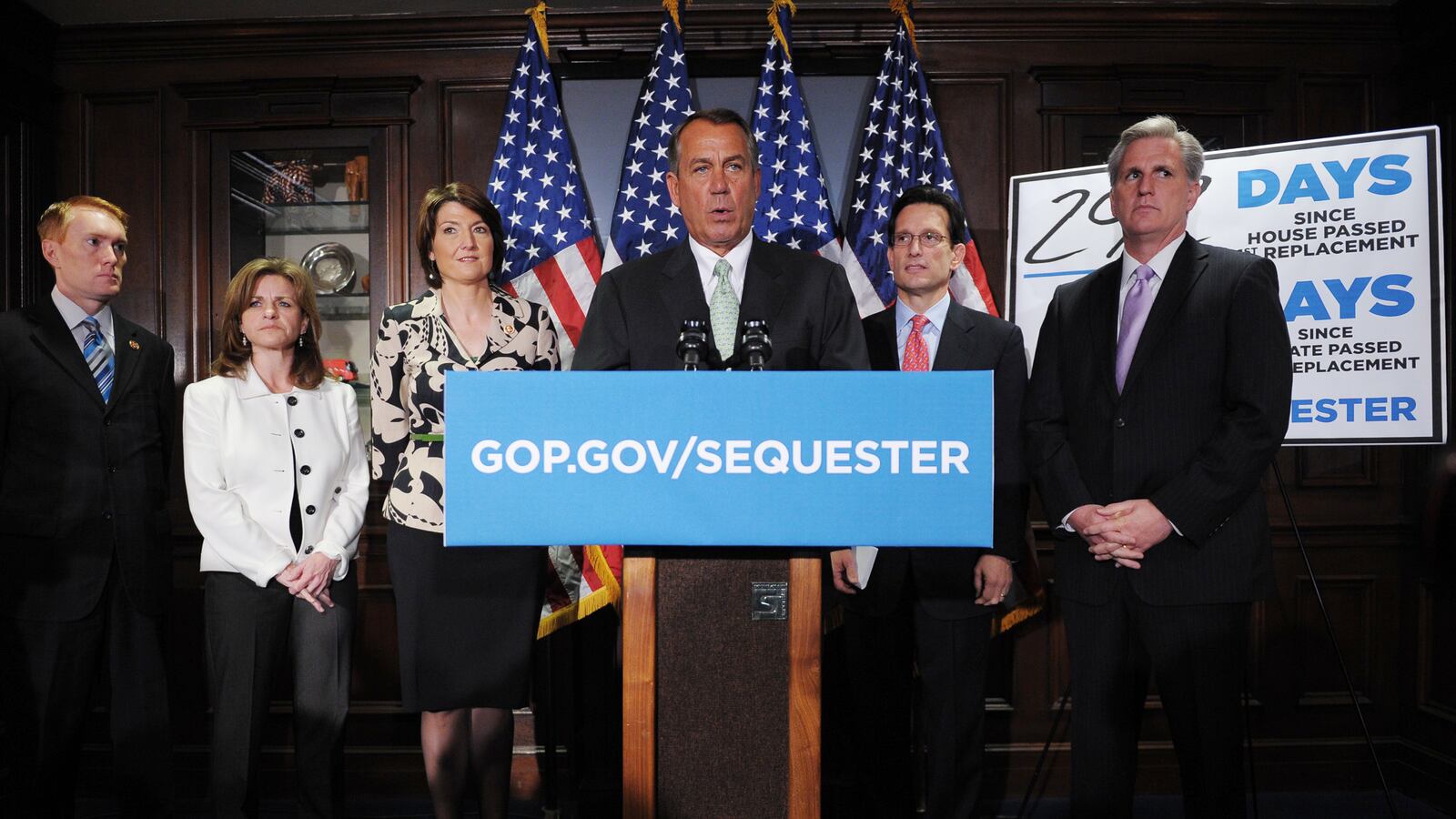
With enormous, across-the-board spending cuts bearing down on the country, and with the two parties still miles away from resolving their budget differences, it may seem impossible to avoid the economic and human damage these looming cuts will cause. But there is a way out of this mess. The key is for conservatives in Congress to remember that most of the special tax breaks written into the tax code are really just hidden spending programs.
If the automatic cuts known in Washington as the “sequester” kick in, as they are scheduled to do in less than a week, the consequences will be devastating. Indeed, these cuts were deliberately designed to be so blunt and so damaging that both Republicans and Democrats would want to avoid them. Even a partial list of the likely consequences should be enough to make anyone want to bend over backward to find a way to avoid them.
According to the White House, the sequester will mean up to 2,100 fewer food inspections, 373,000 mentally ill adults and children going without treatment, 70,000 kids being kicked out of preschool, 2,700 schools losing federal funding, about 30,000 teacher layoffs, a reduction in federal law enforcement capacity equivalent to the loss of 1,000 federal agents, 1,000 fewer criminal prosecutions, and the list goes on and on. The chairman of the Joint Chiefs of Staff, Gen. Martin Dempsey, recently said before the Senate Armed Services Committee that sequestration will “make it much harder for us to preserve readiness after more than a decade of fighting in Iraq and Afghanistan.”
This horrifying list hasn’t yet been enough to bring Republicans and Democrats together to agree on a plan to replace the sequester with smarter deficit reduction. The sticking point, as it has been for the last three years, is revenue. Democrats are insisting that any plan to replace the sequester include some additional new revenues along with any additional spending cuts. Republicans, for their part, are insisting on an all spending cuts approach. Hope for compromise seems dim.
But there is a way forward. All it takes is for the Republicans to remember that there are hundreds of billions of dollars in hidden spending programs that operate through the tax system. Cutting them would satisfy both Republicans who demand smaller government and Democrats who want higher revenue.
These spending programs are known as “tax expenditures,” and for good reason. In most cases they are indistinguishable from spending programs in every respect, except that they deliver their benefit in the form of a targeted tax break instead of a government check.
Imagine, for example, that Congress created a program whereby, each year, oil companies could apply to the Department of Energy and receive a direct subsidy worth about 2 percent for every dollar they earned. That would clearly be a spending program, right? And a really wasteful one at that. It turns out we do have that program, only instead of being administered by the Department of Energy, it’s administered by the Internal Revenue Service. There are dozens and dozens of other examples of these kinds of spending programs that operate under the radar as special tax breaks.
For years, conservatives seeking to cut down the size of government have recognized that these tax expenditures are equivalent to spending programs. As President Reagan’s chief economic adviser, Martin Feldstein, wrote in 2010: “If Congress is serious about cutting government spending, it has to go after many of them. Cutting tax expenditures is really the best way to reduce government spending.” And none other than House Speaker John Boehner said before the 2010 midterm elections: “We need to acknowledge that what Washington sometimes calls tax cuts are really just poorly disguised spending programs that expand the role of government in the lives of individuals and employers.”
Right now, the sequester may seem inevitable. Republicans want spending cuts, and Democrats want revenue increases. Cutting tax expenditures is both. And that’s where Congress should focus if they want to cut through the Gordian Knot of the sequester. Republicans will be able to say honestly that they cut down on the size and reach of government spending programs, and Democrats will be able to say honestly that they generated some new revenue. And both sides will get to claim credit for improving and simplifying the tax code, while simultaneously avoiding a terrible, self-inflicted wound on the country.




